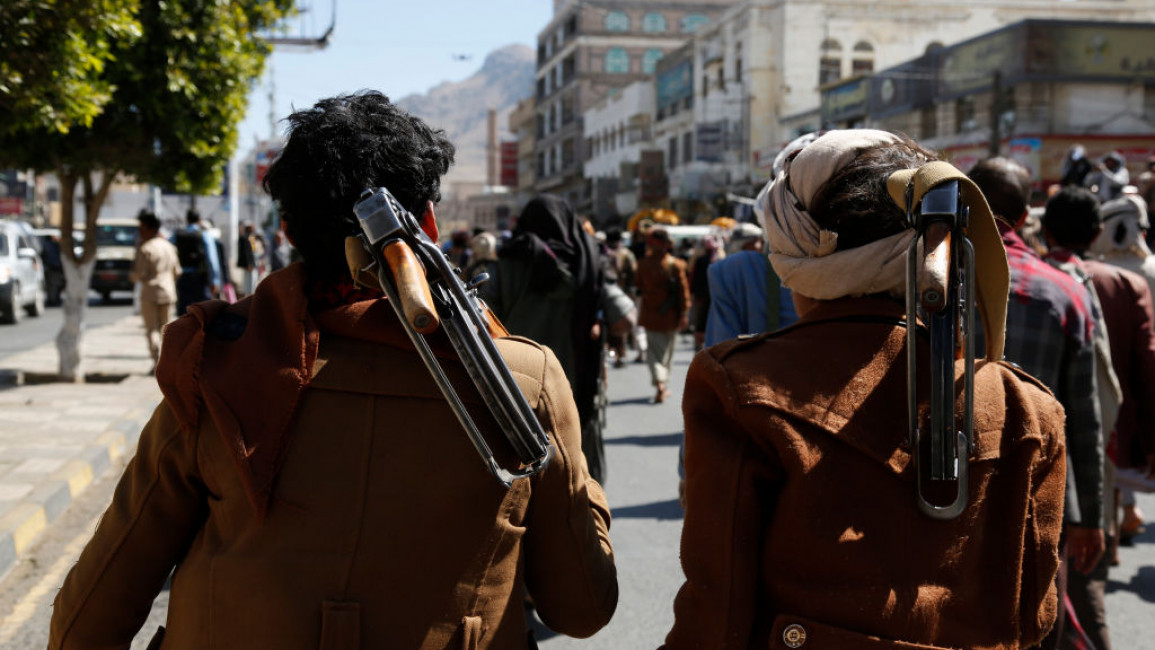
As conflict escalates, Yemen urgently needs an international oversight mechanism
On 17 January, Yemen's Iranian-aligned Houthi rebels launched attacks against an oil facility and the international airport in Abu Dhabi, which resulted in three deaths.
The Saudi-led coalition responded with heavy airstrikes on Yemeni cities including the capital Sanaa and the embattled port city of Hodeida; it initially denied responsibility for a widely criticised attack on a detention facility in the northern city of Saada – a traditional Houthi stronghold – that left over 200 dead or injured. On the following Monday, the Houthis retaliated with yet another round of missile strikes directed against the UAE and Saudi Arabia.
Recent developments mark a drastic escalation of violence in Yemen's more than the seven-year-old civil war which stands to threaten wider stability in the region and worsen an already dire humanitarian situation.
To prevent further serious rights violations and abuses and halt a descent into a humanitarian catastrophe, the international community must reinstate the mandate of the Group of Eminent International and Regional Experts (GEE) on Yemen – which effectively ceased operations last year – or set up a similar international oversight mechanism.
"[T]he fact that the GEE's original mandate included investigating individual responsibility – and required that the Group's assessment consider the gender dimensions of rights violations – were thus particular strongpoints"
The GEE was first established by the UN Human Rights Council according to resolution 36/31 of 29 September 2017, for purposes of monitoring and reporting on the human rights situation in the country, and to examine alleged violations of international law committed by all parties to the conflict since the outbreak of the war in September 2014.
The GEE was also tasked with establishing the facts and circumstances surrounding alleged violations and abuses and, where possible, identifying individual perpetrators. Fact-finding missions and commissions of inquiry operating under the auspices of the UN were traditionally (and often still are) limited to merely setting the record of events; the fact that the GEE's original mandate included investigating individual responsibility – and required that the Group's assessment consider the gender dimensions of rights violations – were thus particular strongpoints.
The GEE alerted the international community on multiple occasions (for instance, in August 2018 and December 2020) that all parties to the conflict have committed serious violations of international human rights law and international humanitarian law that may amount to war crimes, and that those responsible are seldom held accountable. (The third report presented to the Human Rights Council in September 2020 was titled "A Pandemic of Impunity in a Tortured Land".)
Complementary analysis by rights groups drew particular attention to the fact that both the Saudi-led coalition and the Houthis have used starvation as a method of warfare by deliberately destroying civilian objects that are essential to the survival of the civilian population.
The GEE's mandate was renewed annually until the 48th session of the Human Rights Council in October 2021, when a corresponding resolution presented by the Netherlands was rejected by 21 votes against, 18 votes in favour, and 7 abstentions. The move came amidst extensive Saudi lobbying against the GEE – and thus international oversight over the conduct of its war in Yemen – that drew heavy international criticism.
Mwatana for Human Rights, a leading Yemeni human rights organization, called the decision a "historic failure by the international community to uphold international law" that would "only entrench impunity".
In its last report before termination of the mandate, dated September 2021, the GEE reiterated its call for the UN Security Council to "ensure there is no impunity for the most serious crimes" by referring the situation in Yemen to the International Criminal Court (ICC) and expanding the list of persons subject to Security Council sanctions.
Meanwhile, civil society organizations have long advocated for the creation of an additional body alongside the GEE similar to the International, Impartial and Independent Mechanism (IIIM) for Syria or the Independent Investigative Mechanism for Myanmar (IIMM) – which have been described as part of a "new generation" of investigative mechanisms mandated to collect and preserve evidence that may be used in criminal proceedings.
"It is particularly shameful that the members of the Human Rights Council decided to abandon the Yemeni people to their fate amidst calls for heightened, not less, international oversight and accountability"
It is particularly shameful that the members of the Human Rights Council decided to abandon the Yemeni people to their fate amidst calls for heightened, not less, international oversight and accountability. Developments over the last weeks have shown the immediate consequences of such cynical inaction.
As the primary UN body responsible for promoting universal respect for the protection of human rights and fundamental freedoms, the Human Rights Council must revisit its decision to end the GEE's mandate and re-establish a similar – even stronger – impartial investigative mechanism.
Alternatively, the UN General Assembly – which previously filled the gap by creating the IIIM when the Security Council was deadlocked over Syria – should step up to ensure that the global fight against impunity for international crimes does not end with the "world's worst humanitarian crisis" in Yemen.
Anna-Christina Schmidl is a human rights researcher and writer currently based in Germany.
Follow her on Twitter: @AnnaCSchmidl
Have questions or comments? Email us at: editorial-english@alaraby.co.uk
Opinions expressed in this article remain those of the author and do not necessarily represent those of The New Arab, its editorial board or staff.


![President Pezeshkian has denounced Israel's attacks on Lebanon [Getty]](/sites/default/files/styles/image_684x385/public/2173482924.jpeg?h=a5f2f23a&itok=q3evVtko)



 Follow the Middle East's top stories in English at The New Arab on Google News
Follow the Middle East's top stories in English at The New Arab on Google News


